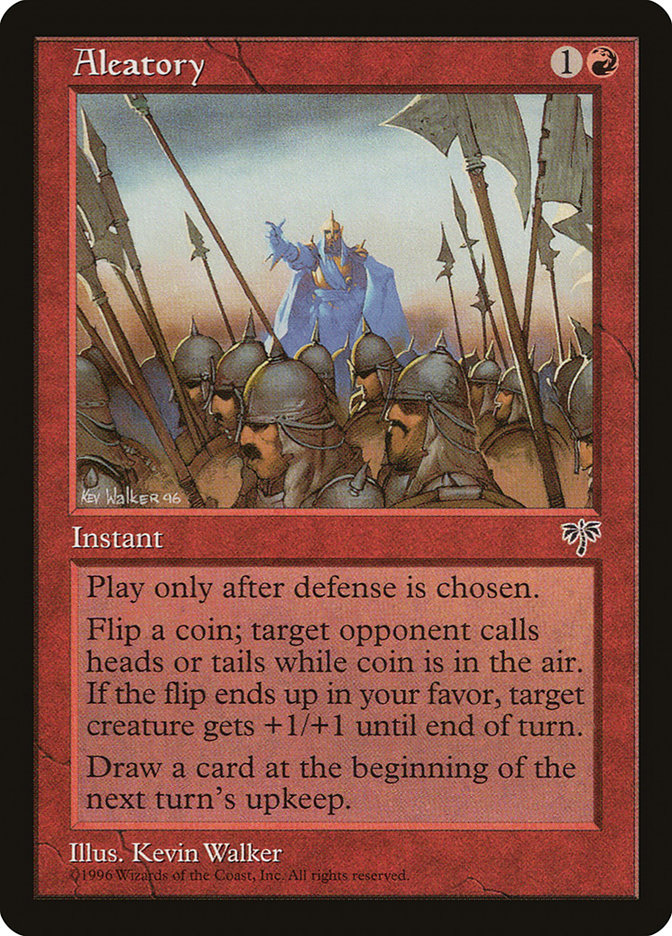Aleatório Carta MTG
| Custo de mana | |
| Custo convertido de mana | 2 |
| Raridade | Incomum |
| Tipo | |
| Lançamento | 1996-10-08 |
| Expansão símbolo | |
| Expansão nome | Mirage |
| Expansão código | MIR |
| Número | 155 |
| Frame | 1997 |
| Layout | Normal |
| Border | Preta |
| Ilustrado por | Kev Walker |
Onde comprar
Se você deseja comprar um cartão Aleatório MTG de um conjunto específico como Mirage, há diversas opções confiáveis a serem consideradas. Uma das principais fontes é a loja de jogos local, onde muitas vezes você pode encontrar boosters, cartas individuais e decks pré-construídos de conjuntos atuais e de alguns conjuntos anteriores. Eles geralmente oferecem o benefício adicional de uma comunidade onde você pode negociar com outros jogadores.
Para um inventário mais amplo, especialmente de conjuntos mais antigos, mercados on-line como TCGPlayer, Card Kingdom e Card Market oferecem seleções extensas e permitem que você pesquise cartas de conjuntos específicos. Grandes plataformas de comércio eletrônico, como eBay e Amazon, também têm listagens de vários vendedores, o que pode ser um bom lugar para procurar produtos lacrados e achados raros.
Além disso, o site oficial do Magic geralmente tem um localizador de lojas e listas de varejistas para encontrar a Wizards of the Produtos licenciados pela Costa. Lembre-se de verificar a autenticidade e a condição dos cartões ao comprar, especialmente de vendedores individuais em mercados maiores.
Abaixo está uma lista de alguns sites de lojas onde você pode comprar os Aleatório e outras cartas MTG:
 COMPRAR
COMPRAR BurnMana é parceiro oficial da TCGPlayer
- eBay
- Card Kingdom
- Card Market
- Star City Games
- CoolStuffInc
- MTG Mint Card
- Hareruya
- Troll and Toad
- ABU Games
- Card Hoarder Magic Online
- MTGO Traders Magic Online
Veja produtos de MTG
Legalidades
Magic the Gathering formats where Aleatório has restrictions
| Formato | Legalidade |
|---|---|
| Commander | Válida |
| Legacy | Válida |
| Oathbreaker | Válida |
| Premodern | Válida |
| Vintage | Válida |
| Duel | Válida |
| Predh | Válida |
Regras e informações
O guia de referência para regras de cartas de Magic: The Gathering Aleatório fornece decisões oficiais, quaisquer erratas emitidas, bem como um registro de todas as modificações funcionais que ocorreram.
| Data | Texto |
|---|---|
| 2004-10-04 | You pick the target on announcement and flip the coin on resolution. |
| 2013-09-20 | If a turn has multiple combat phases, this spell can be cast during any of them as long as it’s after the beginning of that phase’s Declare Blockers Step. |
